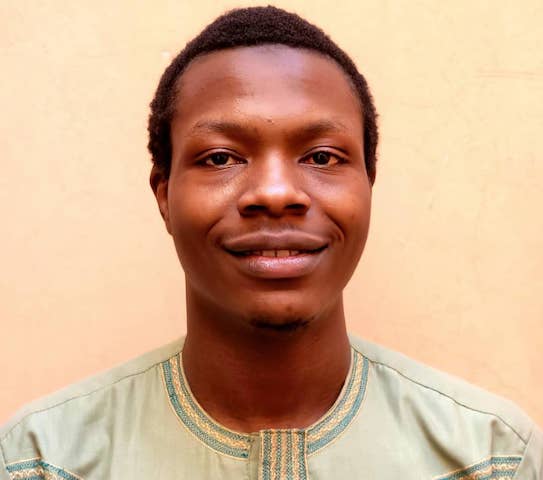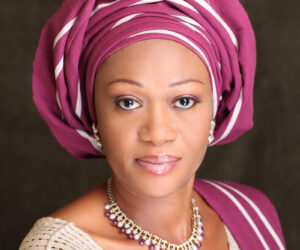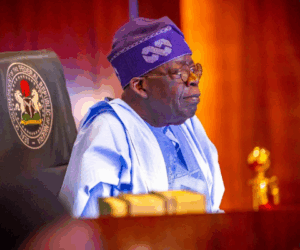
For startups, the event offered exposure and investor access that might otherwise take months to secure. For policymakers, it was a golden opportunity to pitch Nigeria as more than a consumer market, but a genuine innovation hub with global aspirations. The central challenge, however, is whether Nigeria can convert the buzz of GITEX into sustained momentum.
When the spotlight fell on Nigeria in early September, it was no ordinary tech gathering; it was a powerful statement of intent. The inaugural GITEX Nigeria 2025 kicked off with a policy-heavy opening day in Abuja, before shifting to a dynamic three-day showcase in Lagos. This dual-city event attracted a powerful mix of global tech giants, hundreds of startups, savvy investors, and key policymakers, creating a buzz that resonated far beyond our borders.
In his opening remarks, Director-General of the National Information Technology Development Agency (NITDA), Kashifu Inuwa Abdullahi, urged pan-African collaboration on shared AI infrastructure, warning that without it, Africa risks being left as a passive consumer in the Fourth Industrial Revolution.
He said Africa must urgently build capacity in policy, infrastructure, and human capital to avoid being left behind.
“We need shared infrastructure and local algorithms that reflect our culture. Nigeria is already making progress through initiatives in digital literacy, data centers, and projects like ‘Project Reach’ to connect the unconnected,” Abdullahi said, noting the importance of partnerships with big tech and funding for AI research.
In his keynote address, the Minister of Communications, Innovation and Digital Economy, Dr Bosun Tijani, set the national agenda. He revealed a staggering statistic: Nigeria’s digital economy had already generated ₦7 trillion in the first quarter of 2025, accounting for an impressive 14.19 per cent of the nation’s GDP. He didn’t stop there, projecting a bold target of reaching 21 per cent by 2027. His message was clear: Nigeria must not only accelerate digital adoption across all sectors but also build its own homegrown AI models and fiercely safeguard its data sovereignty.
By the time the action moved to Lagos, Governor Babajide Sanwo-Olu added local momentum to the national ambition. He announced that Lagos alone had attracted over $6 billion in technology-focused foreign investment between 2019 and 2024; a testament to the state’s relentless drive to become Africa’s innovation capital.
The numbers electrified the audience, but behind the grand announcements and dazzling statistics, a deeper question lingered: Can Nigeria truly translate this global attention into sustained, broad-based digital transformation? Or will GITEX Nigeria prove to be another fleeting carnival that fades after the banners come down?
For over four decades, GITEX has been synonymous with Dubai, a sprawling expo that often sets the agenda for the global technology landscape. This year, for the first time, the Gulf Information Technology Exhibition extended its brand to Nigeria, a deliberate move that acknowledges the country’s massive population and its vibrant, restless young talent base. The Lagos edition was no modest affair.
Nigeria enters this pivotal moment from a position of undeniable strength. With a population exceeding 220 million, a median age of just 18, and one of the fastest-growing pools of mobile internet users, it is already Africa’s largest digital market. Lagos, in particular, has become a magnet for venture capital, hosting the headquarters of fintech giants like Flutterwave and Paystack. GITEX Nigeria reinforced this momentum, positioning the country as a leader rather than a follower in the continent’s digital future.
Organisers proudly touted the participation of more than 650 startups from across Africa, the Middle East, and Asia; 200 investors and venture capitalists; and over 100 international tech brands, including industry titans like Cisco, IBM, and MTN.
The event’s festival-like energy was palpable, fuelled by pitch competitions, insightful panel discussions, and crucial investor roundtables. A major highlight was Nigeria’s own Curacel, a health tech startup, which emerged as the winner of the prestigious Supernova Challenge, GITEX’s flagship startup competition.
For Curacel, this was a powerful validation of years spent building in one of the continent’s toughest markets. For Nigeria’s wider tech ecosystem, it was a clear signal that local innovation is finally earning global credibility and recognition.
The messages from Abuja to Lagos were consistent and they carried recurring themes: artificial intelligence, infrastructure, talent, and the creative economy. Minister Tijani underscored the urgent need to embed AI into critical sectors like agriculture, healthcare, logistics, and government services. He argued passionately that Nigeria cannot afford to rely solely on AI systems developed abroad. He called on Africa to build homegrown large language models (LLMs) trained on local languages and data to avoid what he called “data extractivism”; a new form of digital colonisation.
Another major talking point was digital infrastructure. With new hyper-scale data centres already operational and undersea cables boosting bandwidth, Lagos is strategically positioning itself as a continental hub for cloud services. Officials highlighted “Project BRIDGE,” a fibre backbone initiative designed to expand broadband access and, critically, keep sensitive data within Nigeria’s borders. The emphasis was not just on speed and connectivity but on data sovereignty — ensuring that Nigeria’s information is processed and secured locally, rather than exported offshore.
No less central was the question of talent. Nigeria’s “3 Million Technical Talent (3MTT)” programme, launched in 2023, was presented as the government’s ambitious answer to the chronic shortage of skilled digital workers. “Without talent, all this infrastructure means nothing,” Tijani stated bluntly. “We need millions of skilled young people to translate potential into reality.”
The creative economy also featured strongly. From the global appeal of Nollywood films to the infectious rhythms of Afrobeats, speakers argued that Nigeria’s cultural exports are natural strengths that can be supercharged by AI, blockchain, and other digital platforms. The ambition, they said, is to shift from the global consumption of Nigerian content to the global monetisation of African creativity.
After the banners have come down and the exhibition halls gone empty, what remains of GITEX Nigeria 2025? The answer depends entirely on what happens next. If timelines are honoured, funds flow into diverse sectors, and local AI models begin to take shape, this event could be remembered as a true turning point — a moment when Africa’s most populous country began to shape its own digital destiny.
Nigeria enters this pivotal moment from a position of undeniable strength. With a population exceeding 220 million, a median age of just 18, and one of the fastest-growing pools of mobile internet users, it is already Africa’s largest digital market. Lagos, in particular, has become a magnet for venture capital, hosting the headquarters of fintech giants like Flutterwave and Paystack. GITEX Nigeria reinforced this momentum, positioning the country as a leader rather than a follower in the continent’s digital future. It also signalled that global tech brands are ready to deepen their stakes in Nigeria, despite the well-known hurdles — unstable power supply, shifting regulations, and currency volatility.
For startups, the event offered exposure and investor access that might otherwise take months to secure. For policymakers, it was a golden opportunity to pitch Nigeria as more than a consumer market, but a genuine innovation hub with global aspirations. The central challenge, however, is whether Nigeria can convert the buzz of GITEX into sustained momentum. Experts and investors at the event repeatedly called for practical, actionable steps: publish clear timelines and key performance indicators (KPIs) for flagship projects like Project BRIDGE; create blended public-private funds to finance early-stage startups beyond the confines of Lagos; strengthen university-industry partnerships to build robust research capacity in AI; and introduce interim AI governance to protect data and curb misuse, while broader legislation takes shape. As one investor aptly remarked, “The market is here, the talent is here, the culture is here. What we need is consistency and delivery.”
Governor Sanwo-Olu positioned Lagos not just as Nigeria’s commercial capital but as Africa’s innovation capital. He pointed to the state’s expanding fibre grid, burgeoning startup clusters, and dynamic cultural industries as its competitive edge. But he also admitted that this leadership cannot be taken for granted. Other African cities — Nairobi, Cape Town, and Kigali — are equally determined to claim the same mantle. That healthy rivalry may, paradoxically, be a good thing. It forces Nigerian policymakers and investors to deliver results, not just rhetoric.
After the banners have come down and the exhibition halls gone empty, what remains of GITEX Nigeria 2025? The answer depends entirely on what happens next. If timelines are honoured, funds flow into diverse sectors, and local AI models begin to take shape, this event could be remembered as a true turning point — a moment when Africa’s most populous country began to shape its own digital destiny. If not, it risks being remembered as another well-staged carnival with little lasting impact.
For now, at least, Lagos has placed itself squarely on the global tech map. As Minister Bosun Tijani put it, “Africa must lead, not follow.” The real work, however, is just beginning.
Shuaib S. Agaka is a tech journalist based in Kano.












